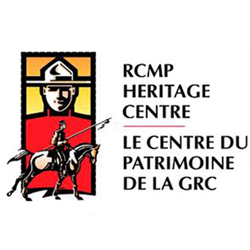Larry Burden’s This Day In The RCMP
The achievements and contributions of the Force have been built upon the individual contributions of many past Veterans. These contributions have largely been forgotten.
Veteran #35982 Sgt. Larry Burden who served in “E” Division for 20 years has spent over ten years researching and summarizing these achievements by specific date. Nearly every day, Larry sends out an email message with a selection from his work in progress manuscript “This Day In The RCMP” to individuals interested in these historical notes.
In an effort to share his research to a large group, Larry has agreed to permit us to develop a webpage on our website. Each webpage will post Larry’s historical notations over the past week.
If you wish to contact Larry Burden or provide additional information about his research, please email him at larryburden8@gmail.com.
July 16
1895 – During a severe thunderstorm at Battleford NWT, lightning struck the Quarter Master stores, and traveled into a canteen killing a dog lying at the feet of #1943 Frederick Currier. It then traveled into #2606 George McPhail’s room tearing a blanket and partially melting the barrel of his carbine rifle.
1924 – The Province of Saskatchewan repeals the prohibition of liquor, which had existed since 1916 and institutes government control of liquor sales.
1950 – Honour Roll Number 107.

#14757 Cst. Herschel Taylor Wood died of injuries received in a police car accident near Glacier Park, Montana, U.S.A., while on duty.
On July 15th 1950, Constables Herschel Taylor Wood and #13591 William A. Shaw were returning to their detachment in Cardston Alberta from an investigation that had taken them to Montana. Constable Shaw had done most of the driving during the thirteen-hour trip and they had stopped in Glaicer Park to change drivers. Wood took over driving while Shaw went to sleep as they proceeded through the fog. For an undetermined reason their car went over an embankment eighteen miles south of Cardston and plunged into a narrow creek bed and crashed into a concrete abutment. Both officers were severely injured and Wood was transported to by ambulance to the Colonel Belcher Hospital in Calgary, 150 miles away, where he died the next day.
Constable Herschel Taylor Wood was a third-generation member of the Force and the son of the Stuart Taylor Wood, the serving Commissioner of the RCMP at that time. He had a rich family heritage that entwined both RCMP and American history.
His brother John Taylor Wood, was also a member of the Force who retired in 1988 with rank of Superintendent. Their grandfather, Zachary Taylor Wood, served in the NWMP and the RNWMP from 1885 to 1915 and rose to the rank of Acting Commissioner of the RCMP.
Zachary Taylor Wood’s father was the famous Confederate Naval Commander, Captain John Taylor Wood who after the American Civil War, settled in and is buried at Halifax Nova Scotia. He was the nephew of the Confederate President, Jefferson Davies and the great-grandson of the twelfth President of the United States Zachary Taylor.
Constable Wood was interred with full military honors at the RCMP Cemetery in Regina. In a funeral ceremony befitting his ancestry his flag-draped coffin was borne from the RCMP Chapel on a gun carriage drawn by two teams of horses. Followed by a rider less horse with boots reversed in the stirrups, and a funeral cortege that included a thirty-six-piece RCMP band, a firing party, and a ninety-member marching squad.
July 17
1976 – Queen Elizabeth II officially opens the Summer Olympic Games before an enthusiastic Montreal crowd of 73,000 even though the Stadium is unfinished, and 21 countries, mostly African, boycotted the games. The Games of the XXI Olympiad are Canada’s first Olympics and will cost over $1.5 billion dollars. A total of 6,085 competitors from 92 nations compete over 16 days and Romanian gymnast Nadia Comaneci makes history with two perfect 10 scores. Canada will win five silver and six bronze medals, becoming the first host country in the modern Olympics to not win a gold medal.
2007 – Mr. William J. S. Elliot became the 22nd Commissioner of the RCMP on July 16, 2007.
July 18
1951 – Alexander Zakopiac and Albert Proux were two notorious criminals who robbed the East branch of Imperial Bank of Canada in East Kildonan, Manitoba and fled on foot into the bush with the $6920 they got in the robbery. The pair was later found in Vivian MB and in the ensuing gun battle that occurred, #15298 Constable John Friend was wounded. Albert Proux was killed in the exchange and Zakopiac was arrested by Constables #17047 George Annand and #15848 / O.699 George Currie. Alexander Zakopiac was sentenced to 30 years in prison but succeeded in escaping in 1955 after he had been transferred to the Selkirk Mental Home. He was eventually recaptured in 1979.
1977 – Parliament passes new laws to control purchase and use of firearms, and to increase police wiretapping powers.
1997 – With only twenty minutes to before his shift ended at 0400 hours #41277 Constable Barry Thomas notice a yellow glow in the sky near the airport in Swan River Manitoba. He rushed to the scene and found The Belcher residence on fire and the attached garage engulfed in flames. His arrival coincided with one of the owners of the house arrival from inside the burning build and she quickly explained that she could not call for help because the fire had knocked out the phone line. Constable Thomas observed that Mr. Betcher was in shock and assisted him out of building but when he looked he saw Mrs. Betcher rush back into the burning building.
Even though the family car parked in the garage was in danger of exploding and the growing smoke and flame inside the house Constable Thomas rushed back into the house and went from room to room looking for her and anyone else that may have been in the building. Unbeknown to him the woman had left the house through the back door without his knowledge. He complete searching every room and returned to the street whereupon he found Mrs. Betcher and proceeded to care for them until other emergency services arrive. For his selflessness and bravery Constable Thomas was awarded the Commanding Officers Commendation.
July 19
1962 – Honour Roll Number119.

Photograph of RCMP Constable Archie Lepine (Source of photo – Surrey RCMP Detachment).
#21512 Cst. Archille Octave Maxime Lepine age 24 was killed in a motorcycle crash at Surrey BC.
At approximately12:20 on the morning of July 15th 1962, Constable Archille Lepinewas riding his police motorcycle up Pederson Hill to Whalley at approx 45 mph. The visibility and road conditions were good when he drove into the side of a truck that was turning left. Lepine’s head struck the top edge of the roof of the truck and then slid down the windshield tearing off his helmet causing extensive lacerations. Following the collision, his motorcycle hurled down the road in a shower of sparks with Lepine entangled with it as it caught fire.
Several witnesses managed to pull Constable Lepine away from the wreckage and extinguished his burning clothes. He was rushed to the Royal Columbian Hospital in Vancouver but succumbed to his injuries four days later. Constable Lepine had been in the RCMP for only two years and was buried with full Honors at Gethsemane Memorial Gardens in Prince Albert Saskatchewan.
1976 – Commanding Officers Commendations for bravery was awarded to #25316 Constable Richard Kitchen and Okanagan Helicopters pilot, Jim Franklin, after they rescued a woman and child who had been swept over waterfalls at Clearwater Lake in British Columbia. Constable Kitchen was suspended in harness on 100 foot rope below the helicopter was able to lift them from an islet as the helicopter carried them to safety.
2012 – On this day #57753 Constable Peter D. Chandler was patrolling Highway 40, thirty kilometers west of Battlefords Rural Detachment near the Sweet Grass First Nation, when he was flagged down by a motorist. The drive explained that he witnessed a Ford Mustang go over the shoulder of the road and crash into a pond.
Cst. Chandler rushed to the scene and climbed down a 40’ embankment and waded into the water struggling through thick alders to reach the submerged overturned vehicle. When he reached the location, he was advised by the driver who had managed to escape the sinking vehicle, that there was a passenger trapped inside the car.
Chandler then removed all his personal equipment, including gun belt, vest and boots and swam down to the car. Feeling around in the frigid, zero-visibly water, he felt and arm through the passenger window but was unable to pull the person free, because they were strapped in by their seatbelt. He then swam to the surface advised the other on the scene to call 911 and advise them about the situation and obtained a knife from a bystander. He then dove back into the 9’ of water and attempted to cut the seatbelt.
Feeling his way in the black water Chandler finally succeeded in cutting free the seatbelt, but cut his own hands several times in the process. After clearing the seatbelt, he managed to pull the victim out of the vehicle and swim the lifeless body back to shore where he turned it over to other emergency personnel who began CPR. Unfortunately, the victim could not be revived.
In recognition of his presence of mind, quick action and courage in attempting to save a life he was awarded a Commander’s Commendation, the Royal Canadian Humane Association Silver medal for bravery, St Johns Ambulance gold pin award from Canada, St John Ambulance Silver medal from the UK and a Royal Lifesaving certificate award.
July 20
1885 – Trial of Louis Riel 1844-1885 for treason begins at Regina, the capital of the North-West Territories; Riel wishes to plead not guilty, but his lawyers enter an insanity plea over his objections.
1974 – A Commanders Commendation for Bravery is issued to #26614 Charles Dyke for the rescue of a woman from house fire, at Bishops Cove, Nfld. (Looking for more detail)
1985 – After finding him guilty the Alberta Court of Queen’s Bench fines former school teacher James “Jim” Keegstra (1934-) $5,000 for willfully promoting hatred against Jews.
Keegstra was a former mayor and high school teacher in Eckville, Alberta who for over a decade taught his social studies students that the Holocaust didn’t happen, and taught them that Jews were “treacherous”, “subversive”, “money-loving”, “power hungry” and “child killers” and that a Jewish conspiracy controlled world affairs. After being warned by the school board to cease teaching his version of the Jewish conspiracy as fact, Keegstra was fired on December 7, 1982, after he failed to comply with the directive. Afterwards his teaching certificate was revoked when his membership in the Alberta Teachers Association was revoked. On January 11, 1984, he was charged with criminally promoting hatred against an identifiable group for his actions in the classroom from 1978 through 1982.
In 1988 he successfully appealed the verdict arguing that Section 2 of the Canadian Charter of Rights and Freedoms guaranteed the right of “freedom of thought, belief, opinion and expression. In 1990 Supreme Court of Canada overturned the Court of Appeal and ordered a new trial in which the second jury convicts him in 1992.
1994 – Commendation awarded to #38879 /O.2143 Michael Jeffrey for the arrest of man armed with two knives, at Clyde River, Nunavut. (Looking for more detail)
2012 Honour Roll #230

In much of Canada Moose collisions are a regular occurrence and police officers along with others have been killed after colliding with the world’s largest member of the deer family.
On this day 38-year-old #55042 Constable Derek William Henry Pineo was responding to a call at 02:00 a.m. on Highway 14, near his detachment at Wilke, Saskatchewan. When he collided with a large moose on the road.
Hailing from Fall River, Nova Scotia, Derek Pineo had nearly five years’ service in the Force. He left behind his wife Natasha, and three children, Novela, Kayleb and Ocean. After a regimental funeral in Nipawin, SK that was attended by his parents, and family along with numerous others. Later his remains were interred at St. Thomas Anglican Church in Fall River Nova Scotia.
July 21
1941 – The 7th reinforcement draft to Canadian Provost Corps during WWII included; Constables #13660 Temple Clark, #13624 Alfred Baxter, #13646 William Henry and #13642 Erlendur Erlendson.
1947 – Five members of the RCMP lose all of their personal effects when the RMS “Nascopie” sinks near Cape Dorset, NWT.
#O.341 Inspector Albert W. Parsons, along with constables #10196 Robert Hamilton #10416 William Stewart, #13272 Arthur R. Bates, #14554 Murray L. Cottell and S.E. Decker were being transport to Chesterfield Inlet North West Territory aboard the 2500 ton, 285 ½ foot long steamer-icebreaker “Nascopie”. As the ship approached the entrance to Cape Dorset harbour it struck an uncharted steeply rising reef off of Beacon Island. The Royal Mail ship Nascopie owned and operated by the Hudson Bay Company had an illustrious history having served both the government and her owners in two world wars, fighting off a German Uboat attack in WW1. Designed and built in Scotland in 1911she was named after the First Nations people of Quebec and Labrador she had been the lifeline to many in the Arctic for forty years. She remained stranded on the reef for over two months when she was broken in half by a storm on September 25th and her bow slid into deep water. The remainder of the ship’s stern, clung to the reef until another storm on October 15th took her to the bottom.
The wreck of the Nascopie remained undisturbed for nearly fifty years until Paul Beilstein lead a team of divers, rediscovered her in 1997 and placed a plaque on the reef to commemorate the 50th anniversary of her sinking.
1954 – Honour Roll 227.

Photograph of RCMP Special Constable Andrew Ooyoumut.
#S/9161 Special Constable Andrew Ooyoumut Drowned in the Kikatavyuk River, Northwest Territories, (now Nunavut) while on special duty.
1993 – Commissioners Commendations for bravery were earned by # 39745 Constable Richard A. Patenaude and his wife, after they arrested a man who was wielding axe man during the break and enter into the home of an elderly couple. Even though Constable Patenaude was injured in the process, the assailant was subdued and arrested.
July 22
1876– James Farquharson Macleod, C.M.G. (1836-1894) becomes the second permanent Commissioner of the NWMP and serves until October 31, 1880. Born in Drynoch, Isle of Sky, Scotland Macleod was one of the most colourful and interesting Commissioners in the History of the Force, having been a militia officer, lawyer, Policeman magistrate, judge, and politician. His family emigrated to Richmond Hill Ontarion in 1845 because his father a soldier who had father, fallen seriously ill while on military service in Demerara (Guyana) and had lost seven brothers to tropical diseases while they were serving in the British and Indian armies decided to leave Scotland to avoid a similar fate for his sons. Educated at Upper Canada College and passing the bar examinations at Osgoode Hall he moved to Bowmanville Ontario and practiced law from 1860 to 1870. While living in Bowmanville he became a Captain in the Bowmanville Volunteer Militia Rifle Company, where he saw action in the Trent Affair (1861) and the Fenian Raids (1866). Macleod served as brigade major with the Wolseley expedition in 1870 during the Red River rebellion in Manitoba. In 1873 Prime Minister Macdonald offered him a commission as superintendent in the newly established North-West Mounted Police He founded Ft Macleod, suppressed the illegal whisky trade and gained the trust of the Blackfoot and Blood nations. In 1885 relationships between he and Commissioner French began to deteriorate so he accepted an appointment as a stipendiary magistrate for the North-West Territories on and left the force on January 1st 1876. Six months later French resigned and the position of Commissioner was offered to him retaining his appointment as stipendiary magistrate under the terms of the North-West Territories Act of 1875. Macleod had a special admiration and respect for the native people of the region and his tone of patience, reason, and diplomacy in dealing with them made relationship between the Mounties and the locals populace survived until the 1890s.
By 1878 he was becoming seriously concerned about the rapidly decreasing numbers of buffalo on the plains. By then Chief Sitting Bull had fled the United States with his band of nearly two hundred after the Battle of the Little Big Horn and sought refuge from the American military in Canada. With the Souix taking refuge, competition for an increasingly scarce food supply intensified and threatened to lead to warfare among the plains tribes. In an effort to stem the slaughter of the buffalo Macleod introduced legislation in the North West Territories Council to regulate the buffalo hunt. Though he meant well the regulations had little effect on the destruction of the primary food source for the native people and early 1879 all the plains tribes faced starvation. Working himself to the point of near exhaustion (he travelled more than 2,300 miles by horse in 1879 to conduct police work and to fulfill his judicial responsibilities.) In 1880 facing criticism by Parliament for the financial affairs of the Force and his repeated pleas for help for the starving natives that fell on deaf ears, Macleod had enough and resigned from the Mounted police to concentrate on being a magistrate. In 1887 was appointed a judge of the Supreme Court of the NWT. Seriously ill with Bright’s disease, his health deteriorated rapidly and he died on 5 September 1894. The impact of James Farquharson Macleod on the west cannot be overstated. He is buried at Union cemetery in Calgary Alberta. This man of honour and principle had a significant impact on the peaceful development of region and numerous communities, landmarks and buildings bear his name.
1918 – #3300 / O.173 Inspector John Phillips accompanied by #4396 Cpl. William A. Doak and #5369 Cst. Eric H. Cornelius, left Herschel Island, in a boat to obtain their mail. During the journey they were caught in a sudden storm and floating sea ice wrecked their boat. The three men were forced to abandon the boat and jump from one ice floe to another as they made their way to solid ice. Eventually they encountered open water and were forced to swim in the arctic water to reach shore. Constable Cornelius was directed to hike back to Herschel some 12 miles (19 kilometers) away to obtain help, while Inspector Phillips and Corporal Doak built a driftwood shelter on the shoreline. Following orders Constable Cornelius began his trek to Herschel, in soaking wet clothing. By the next morning, Corporal Doak was delirious with fever and the Inspector nearly frozen from the cold. Fortunately they were able to get the attention of a passing whaling boat and were rescued by the crew. When the rescue party located Cst. Cornelius, they found him valiantly struggling in his frozen clothing to find his way back to Herschel Island.
1944 – R.C.M. Police Vessel “St. Roch” captained by Sgt. Henry Asbjorn Larsen 1899-1964 leaves Halifax Nova Scotia to begin her second voyage through the North West Passage. She completes the trip in just 86 in days.
1950 – Former Prime Minister William Lyon Mackenzie King dies at his Kingsmere estate at the age of 75. He was born on December 17, 1874, at Berlin (Kitchener), Ontario and educated at the universities of Toronto and Harvard. He served as Prime Minister of Canada Dec. 29, 1921-June 28, 1926; Sept. 25, 1926-Aug. 7, 1930; Oct. 23, 1935-Nov. 15, 1948.
1972 – Several members were involved in a high-speed criminal pursuit of a truck and camper in Surrey BC. The speeding vehicle had sideswiped a couple of vehicles and avoided a police roadblock. When 23-year-old #26874 Constable Grant Charles Wyton riding a police motorcycle pulled along side the truck. The driver refused to pull over so Constable Wyton steering his motorcycle with his knees leaned over and grabbed the truck door handle, and then let go of his motorcycle. He then grabbed the steering wheel and steered the truck into the ditch and apprehended the driver. Fortunately the successful end to the pursuit did not result in any serious injuries other than the cost of a new motorcycle! Constable Wyton received the Commanding Officers commendation for courage.
1973 – Commanding Officers Commendation awarded to Constables #28476 R.M. Curry and #29733 R.A.C. Jones of Prince George B.C for their arrest of armed murderer. 33-year old Chesley was later sentenced to six years for manslaughter.
July 23
1890 – # 2211 Constable Joseph Shaver discovered that police work is serious business when he found himself before the Commissioner at Depot Division charged for laughing in the ranks while on parade. His trip to service court resulted in a fine of $2.00, which was equivalent to over four days pay!
1900 – The Government of Canada passes legislation banning the immigration of criminals or ‘paupers’ to Canada.
1973 – While swimming at MacLeod’s Beach, Inverness, NS nine-year-old Augusta J. MacLeod became caught in an undertow and was being carried out to sea. When #26792 Cst. Roy Fraser Inman who had been swimming in the area earlier, saw the child struggling in the water over 100 yards from shore and being aware of the treacherous conditions she was in, immediately swam to her aid. On reaching the child, he instructed the girl to put her arms around his neck so that he could support her above the water. He then proceeded to swim to shore with her clinging to his back, spending a great deal of the time holding his breath while swimming underwater. Had Constable Inman not undertaken the exhausting and perilous rescue, the child would likely have perished. For his courage and quick action he was issued the M.G. Griffiths Award from The Royal Life Saving on September 22, 1975 and he was awarded The Medal of Bravery.


 July 17, 2017
July 17, 2017 











